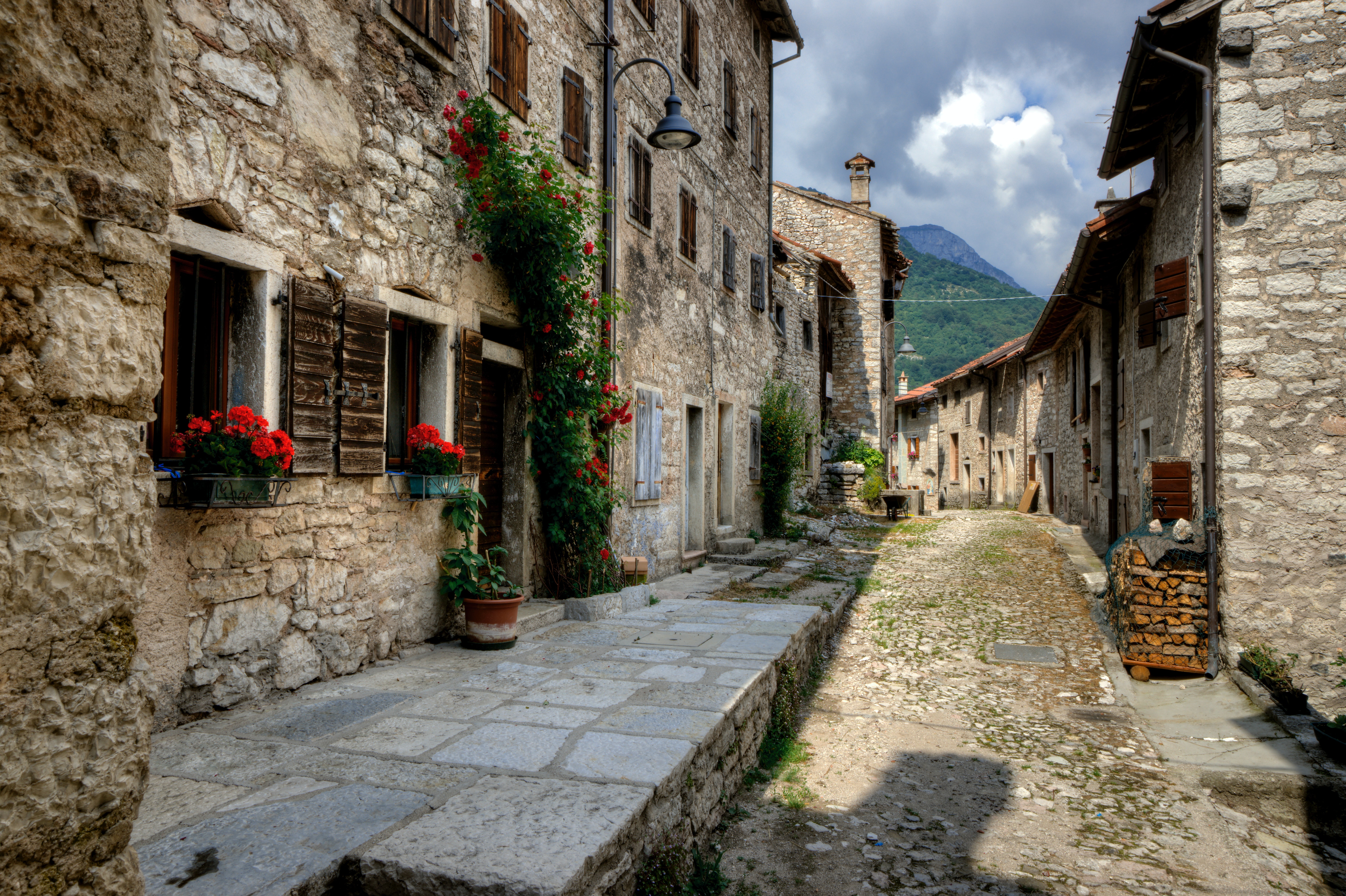On May 7, 1976, newspapers around the world announced a terrible news: the northeastern Italian region of Friuli had been devastated by an earthquake.
More than five hundred people died and 100,000 were left homeless. The hardest hit areas were small mountain villages.
At that time, the rural areas in the mountainous regions of Italy were already being depopulated as the new generations moved to the cities to study and live a more modern lifestyle. It was becoming increasingly difficult to live in these places due to the lack of services and communications. The earthquake was the straw that broke the camel's back.
The situation of depopulation was critical, so solutions were sought. This led Giancarlo Dall'Ara, an Italian hotel marketing consultant, to walk the streets of Maranzanis in Friuli one spring afternoon in the early 1980s.

Village of Friuli, Italy
The small village, surrounded by the nature of the Alps, exuded a sense of abandonment and charm. Many of its houses had been destroyed by the earthquake and, although some elderly people remained, most of the surviving houses were empty.
Giancarlo Dall'Ara was convinced that there had to be a sustainable way to save the mountain villages through tourism. At first, he thought the Maranzanis area was unsuitable for a hotel. The natural beauty of the area was evident and had potential, but the sense of poverty and emptiness in that place discouraged anyone.
That's why he came up with the simple but ingenious concept of Albergo Diffuso, which literally translates as "scattered hotel." Instead of building a hotel to attract tourists or demolishing buildings, an Albergo Diffuso opts to rehabilitate abandoned houses to turn them into hotel rooms.
These rooms, which maintain an authentic and local style, are located in different buildings throughout the town but not more than 150 meters from the reception. Like a vacation apartment, it allows tourists to immerse themselves in village life while offering basic hotel services. For example, breakfast can be delivered to the room and the reception offers a café, shops, and staff available to help with recommendations or reservations.
The Albergo Diffuso, 5 reasons for its success in sustainable development
The Albergo Diffuso has proven to be a successful initiative on numerous occasions. The reasons for its success lie in the following key points:
1. It offers an authentic experience
It meets the needs of a sophisticated class of tourists who prefer to live authentic experiences that connect with the spirit of the place. For example, tourists do not live mixed with other tourists but in contact with the local people. In turn, by staying in buildings similar to those inhabited by the locals, travelers can enjoy their stay as part of the community.
2. It contributes to territorial development
An Albergo Diffuso contributes to sustainable territorial development by utilizing and giving new life to empty spaces while revitalizing the local economy. Some of the objectives of this initiative are to develop a network of synergies between local resources, promote traditional gastronomy, and foster local crafts.
3. It preserves the environment
By not building large hotel buildings, an Albergo Diffuso does not have a negative impact on the environment. In addition, it preserves the landscapes by respecting the local architecture of the villages.
4. It diversifies cultural encounters
This initiative is developed outside the major tourist circuits, with the aim of diversifying the offer. In this way, it facilitates access to a greater number of cultural and natural destinations that would otherwise remain outside the tourist experience.
5. It preserves heritage
The Albergo Diffuso promotes the rehabilitation of the architectural, historical, and social heritage of the villages. It is a unique style that expresses the identity of the territory and enhances its value.

The problem of empty villages is not only found in Italy. That's why the Albergo Diffuso has already crossed borders and has started to be established in countries such as Ecuador, Japan, France, Portugal, and Albania.
Sometimes, a good idea like the one Giancarlo Dall'Ara had can make a significant change.













